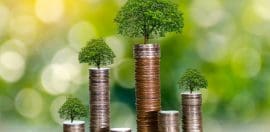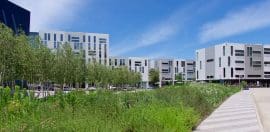An opportunity not to be wasted

17 September 2019 at 7:45 am
If we stop looking at waste as something to be disposed of, and instead recognise it as an asset that can be repurposed, we can unlock a whole new waste to asset industry in Australia, writes Community Sector Banking CEO Andrew Cairns.
It took just eight weeks to completely fill a large warehouse in Melbourne before, now insolvent, recycler SKM locked the doors and left approximately 10,000 tonnes of recyclable waste just sitting there for years. So, bales upon bales of plastic, paper and cardboard will now most likely be sent to landfill by the local council.
Despite the millions of Australians who take their time to recycle each week, this is the reality of our country’s waste crisis. It’s a crisis that came to our collective attention last year when China refused to take any more of our contaminated waste, but in reality, it has been building to this for years.
In an economy that is driven by population and consumption growth, we were always going to create more and more waste. But there isn’t an endless supply of empty warehouses and we can’t go on treating other countries as our dumping ground, so hiding this problem out of sight and out of mind is no longer an option.
The truth is that we cannot have infinite consumption in a finite world – not if we keep using our resources just once and then dispose of them. Which is why it’s important we turn to the UN’s Sustainable Development Goals as the heatmap for humanity and the benchmark to which we can measure against.
Instead of the traditional “take, make and dispose” model of production, we could move towards a circular economic model where used materials are reused, repurposed or recycled. Not only would this reduce the problem of waste disposal, it also reduces the material impact of our society’s growing consumption.
Government certainly has a central coordination role to play in this economic transition. Every jurisdiction would have to have appropriate policies and incentives in place to support markets for recycling and reuse, such as container deposit schemes. But they can’t stop there. Every Australian government should also review their own procurement policies to maximise the reuse of waste, for example waste plastic can be reused in laying down new roads.
The good news is that the Council of Australian Governments (COAG) recently agreed to establish a timetable for banning the export of waste plastic, paper, glass and tyres and develop a comprehensive strategy to reduce waste overall. However, getting the public policy settings right is only one piece of the puzzle – we need to reframe the way we perceive waste as a society.
If we stop looking at waste as something to be disposed of, and instead recognise it as an asset that can be repurposed, we can unlock a whole new waste to asset industry in Australia. As demand for sustainable or recycled goods grows; the Australian business community, civil society and entrepreneurs will rise to meet it.
We are already seeing the green shoots of such an industry, for example a Sydney company, called Rocks Push, sells clothing made from recycled fishing nets that are salvaged from our oceans. This is exactly the sort of creative, entrepreneurial idea that can help remake our economic model if supported by government and the community.
Not only will the creation of a domestic waste to asset industry reduce the material impact of our consumption, it can actually strengthen our economy and our communities. It will create new jobs and keeps money in Australia, which will then be spent in other Australian businesses or to support people of disadvantage.
The Sustainable Development Goals framework recognises that each of the goals is interlinked so that progress in one can spur progress in others. It is not hard to imagine how taking these steps to reduce waste would also help us to build more sustainable communities, improve our water quality, protect our wildlife and even help reduce poverty and homelessness.
When you look at it that way, this crisis is really more of an opportunity – one that we can’t afford to waste.







